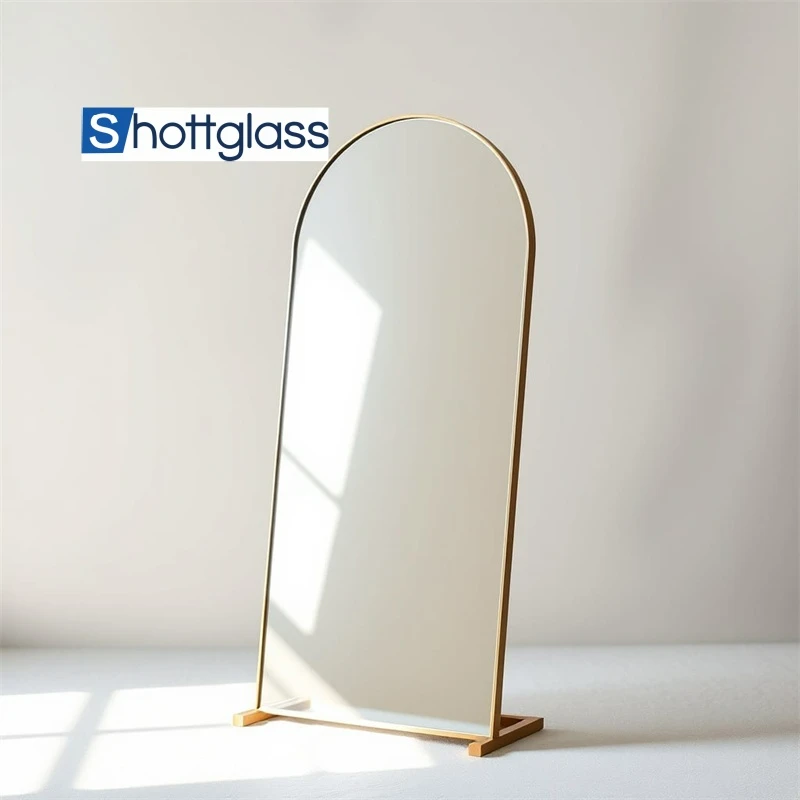Aug . 27, 2025 04:20 Back to list
Types of Special Glass: High-Performance & Custom Solutions
Understanding Advanced Glass Solutions in Industry
In the rapidly evolving landscape of industrial manufacturing and infrastructure, the demand for high-performance materials is paramount. Among these, advanced glass solutions, often referred to as types of special glass, stand out for their unparalleled properties that address critical challenges across diverse sectors. These engineered glass products move beyond conventional applications, offering superior resistance to thermal shock, chemical corrosion, mechanical impact, and specific optical or electrical characteristics. The industry trend is moving towards highly customized, application-specific glass compositions, driven by the increasing complexity of operational environments and stringent regulatory requirements for safety and efficiency. This article delves into the technical intricacies, manufacturing processes, diverse applications, and inherent advantages of modern special glass types, providing essential insights for B2B decision-makers and technical professionals.
The global market for special glass is experiencing robust growth, propelled by innovations in automotive, aerospace, electronics, and construction. Key drivers include the need for enhanced energy efficiency, increased safety measures, and miniaturization in electronic devices. Manufacturers are continually investing in R&D to develop new compositions and processing techniques that push the boundaries of glass performance, making it a critical component in next-generation technologies. This evolution underscores the importance of partnering with a proficient special glass factory capable of delivering bespoke solutions.
Process Flow: Manufacturing of Special Glass
The production of special glass types is a sophisticated multi-stage process, demanding precision and adherence to rigorous quality controls. Unlike standard float glass, the manufacturing of these specialized materials often involves specific raw material compositions and advanced thermal or mechanical treatments to impart desired properties.
Manufacturing Process Steps:
-
Raw Material Selection and Batching:
This initial stage involves selecting high-purity raw materials such as silica sand, soda ash, limestone, dolomite, and specific oxides (e.g., boron oxide for borosilicate glass, alumina for aluminosilicate glass) to achieve desired glass properties. Precise weighing and mixing of these materials are critical for compositional uniformity.
-
Melting:
The batched materials are fed into high-temperature furnaces (up to 1700°C). Depending on the glass type, this could be a continuous tank furnace or a pot furnace. The melting process homogenizes the glass mixture and removes gas bubbles (fining).
-
Forming (Casting/Drawing/Floating):
- Casting: For thicker or complex shapes, molten glass is cast into molds and then slowly cooled.
- Drawing: Processes like the fusion draw (for ultra-flat glass) or up-draw (for tubing) create specific profiles with high precision.
- Float Process: While common for standard glass, variations are used for special glass where molten glass floats on a bed of molten tin, achieving extremely flat and uniform sheets.
-
Annealing:
Controlled cooling of the formed glass in an annealing lehr is crucial to relieve internal stresses that develop during cooling. This improves the glass's mechanical strength and prevents spontaneous breakage.
-
Secondary Processing (Tempering/Lamination/Coating/CNC Machining):
- Tempering: Heat or chemical tempering significantly increases mechanical strength and thermal shock resistance. Heat tempering involves heating glass to near its softening point and then rapidly cooling it.
- Lamination: Combining multiple glass layers with interlayers (e.g., PVB, SentryGlas Plus) for enhanced safety, sound insulation, and security (e.g., Burglar-Proof Glass).
- Coating: Applying thin films for optical properties (anti-reflection, UV protection, IR blocking) or electrical conductivity (ITO coatings).
- CNC Machining: Precision cutting, drilling, and shaping to meet exact dimensional specifications for complex components.
-
Quality Control and Testing:
Finished products undergo rigorous testing according to international standards such as ISO 9001, ASTM (e.g., ASTM C1048 for heat-treated flat glass), ANSI (e.g., ANSI Z97.1 for safety glazing materials), and relevant industry-specific norms. This includes visual inspection, dimensional accuracy checks, optical property verification, and mechanical strength tests (e.g., impact resistance, bending strength).
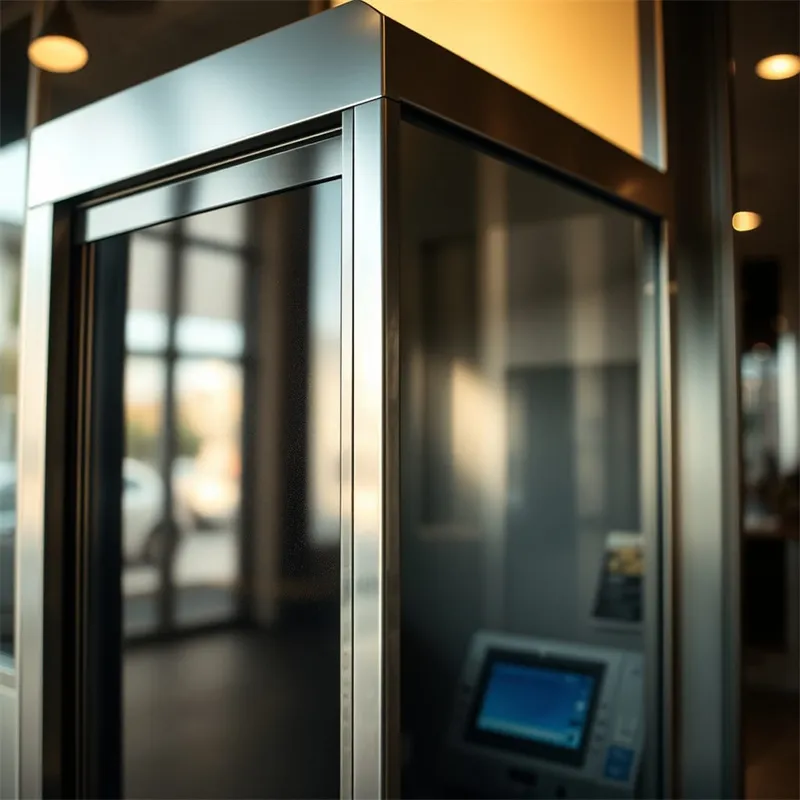
The target industries for these advanced glass products are diverse, including petrochemical (sight glasses, gauge glasses), metallurgy (furnace windows, high-temperature shields), water supply & drainage (observation ports), aerospace (cockpit windows, optical sensors), medical (laboratory equipment, diagnostic slides), and construction (security glass, energy-efficient facades). The service life of special glass can range from decades in static applications to several years in high-stress, dynamic environments, depending on material, application, and maintenance.
In typical application scenarios, these materials demonstrate significant advantages. For instance, borosilicate glass used in chemical reactors offers exceptional corrosion resistance to acids and alkalis, ensuring long-term operational integrity. Laminated security glass, like our Burglar-Proof Glass, provides enhanced energy saving through improved thermal insulation and superior impact resistance, crucial for personnel safety and asset protection.
Technical Specifications and Data Visualization
The performance of types of special glass is defined by a comprehensive set of technical parameters. Understanding these specifications is crucial for selecting the appropriate material for specific industrial applications. Below is a comparative table highlighting key properties of common special glass types.
| Property | Borosilicate Glass (e.g., Schott DURAN) | Aluminosilicate Glass (e.g., Gorilla Glass) | Fused Silica/Quartz Glass | Laminated Safety Glass (e.g., Burglar-Proof Glass) |
|---|---|---|---|---|
| Composition | SiO₂, B₂O₃, Na₂O, Al₂O₃ | SiO₂, Al₂O₃, Na₂O, K₂O | High Purity SiO₂ (>99.9%) | Glass layers + PVB/SGP interlayer |
| Thermal Expansion (α) | ~3.3 x 10⁻⁶ /K | ~7.5-9 x 10⁻⁶ /K | ~0.55 x 10⁻⁶ /K | ~9 x 10⁻⁶ /K (for float glass component) |
| Max Operating Temp. | ~500°C | ~450°C | ~1000°C - 1200°C | ~60-80°C (due to interlayer) |
| Knoop Hardness (kgf/mm²) | ~480 | ~650 | ~700 | ~500 (surface glass) |
| Chemical Resistance | Excellent to acids/alkalis | Good | Excellent to most chemicals | Good (surface glass) |
| Key Advantage | Thermal shock, Chemical stability | High impact strength, Scratch resistance | Extreme temp., UV transparency | Safety, Security, Sound insulation |
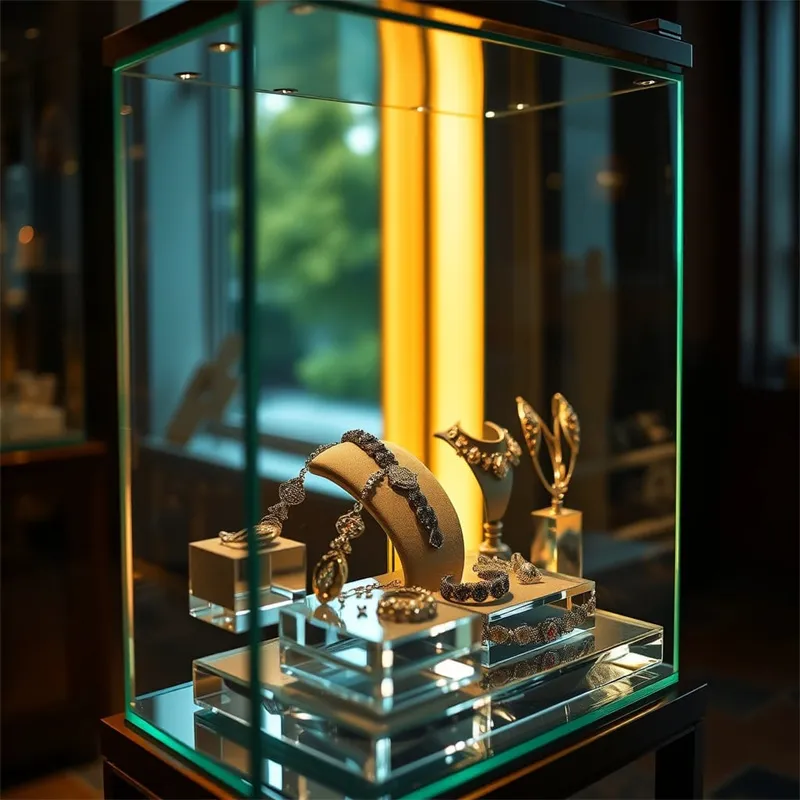
These parameters illustrate the targeted engineering behind each special glass composition. For instance, the very low thermal expansion of fused silica makes it ideal for high-temperature applications where dimensional stability is critical, such as in semiconductor manufacturing or aerospace optics. Aluminosilicate glass, chemically strengthened through an ion-exchange process, exhibits superior scratch and impact resistance, making it suitable for display covers and automotive interiors.
Application Scenarios and Technical Advantages
The diverse properties of types of special glass enable their deployment across a multitude of demanding industrial applications, offering distinct technical advantages over conventional materials.
Key Application Areas:
- Petrochemical and Chemical Processing: Borosilicate sight glasses and level indicators are critical for monitoring fluid levels and reactions in tanks and pipelines, providing excellent corrosion resistance against aggressive chemicals and thermal stability under varying process temperatures.
- Metallurgy and High-Temperature Furnaces: High-purity quartz glass and specialized ceramic-glass composites are used for furnace windows, protective shields, and molten metal flow control, where resistance to extreme temperatures (up to 1200°C) and thermal shock is paramount.
- Water Supply & Drainage Systems: Toughened borosilicate and soda-lime glass are utilized for inspection windows and flow meters, offering durability against water pressure and chemical treatments while allowing visual inspection.
- Security and Architectural Glazing: Laminated and bullet-resistant glass provides superior protection against forced entry, ballistic attacks, and explosions, making it indispensable for banks, governmental buildings, and high-security facilities. Our Burglar-Proof Glass exemplifies this, ensuring robust protection without compromising aesthetics.
- Electronics and Displays: Aluminosilicate and specialty alkali-free glasses serve as substrates for advanced displays, touchscreens, and semiconductor components due to their superior flatness, chemical strengthening capabilities, and specific electrical properties.
Core Technical Advantages:
- Enhanced Durability: Superior mechanical strength, scratch resistance, and impact resistance reduce maintenance costs and extend service life, even in harsh industrial environments.
- Thermal Stability: Low coefficient of thermal expansion and high softening points allow operation across extreme temperature ranges, minimizing thermal stress and deformation.
- Chemical Inertness: Resistance to acids, alkalis, and other corrosive agents ensures integrity in chemical processing, preventing contamination and degradation.
- Optical Clarity and Specificity: High transparency, low distortion, and tunable optical properties (e.g., UV transmission, IR blocking) are critical for precise optical instruments, sensors, and observation windows.
- Safety and Security: Laminated and tempered special glass offers superior protection against breakage, forced entry, and ballistic threats, shattering safely into blunt pieces or retaining integrity upon impact.
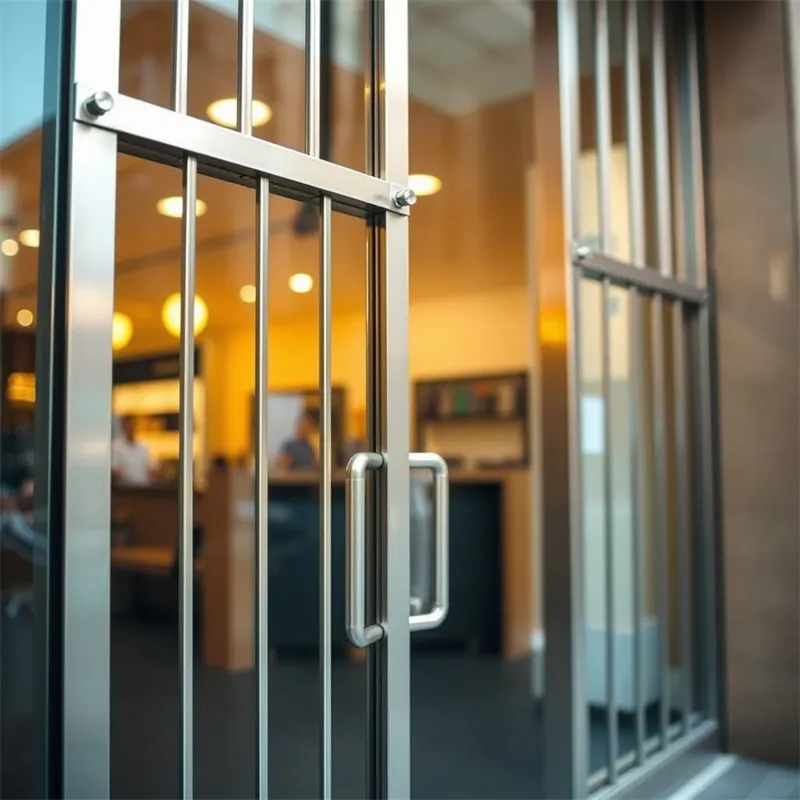
Vendor Comparison and Customization Options
Selecting the right special glass factory is paramount for securing high-quality, reliable, and cost-effective solutions. Key factors in vendor comparison extend beyond basic product specifications to encompass manufacturing capabilities, quality assurance, and technical support.
Key Criteria for Vendor Selection:
- Manufacturing Expertise: Look for vendors with extensive experience in specific types of special glass and advanced processing techniques (CNC machining, chemical strengthening, lamination). Years of service and a robust portfolio of successful projects are strong indicators.
- Quality Certifications: Adherence to international standards such as ISO 9001, CE marking, and industry-specific certifications (e.g., ASTM, ANSI for safety glass) demonstrates commitment to quality and compliance.
- R&D and Innovation: A strong R&D department signals a vendor's capability to develop new compositions or processes for evolving industrial needs.
- Customization Capabilities: The ability to provide bespoke solutions, including specific dimensions, shapes, optical coatings, and edge finishes, is crucial for specialized applications.
- Technical Support and After-Sales Service: Comprehensive support from initial design consultation to post-installation assistance ensures seamless project execution and long-term satisfaction.
- Lead Time and Logistics: Efficient production planning and reliable global logistics are essential for timely project completion and supply chain stability.
Customized Solutions: Tailoring Glass for Specific Needs
For many B2B clients, off-the-shelf solutions are insufficient. Customization is often a necessity, allowing for optimal integration and performance. A reputable special glass factory offers a range of customization options:
- Material Composition Adjustment: Tailoring the glass batch composition to achieve specific optical, thermal, or mechanical properties (e.g., higher transmission in specific UV/IR ranges, enhanced chemical resistance to a particular solvent).
- Dimensional Precision and Shape: Manufacturing glass components with highly specific dimensions, complex geometries (e.g., curved panels, drilled holes, intricate cutouts) using advanced CNC capabilities.
- Surface Treatments and Coatings: Applying anti-reflective, hydrophobic, oleophobic, anti-fog, or electrically conductive coatings to enhance functionality for specific environments.
- Edge Work and Finishing: Polished edges, ground edges, beveling, and specific edge profiles to meet aesthetic or functional requirements (e.g., preventing stress concentration).
- Lamination Options: Varying interlayer materials (PVB, SGP, EVA), thickness, and number of glass plies to achieve specific levels of impact resistance, sound attenuation, or security ratings. For instance, multi-layered laminated glass can provide enhanced protection against determined attacks for our Burglar-Proof Glass line.
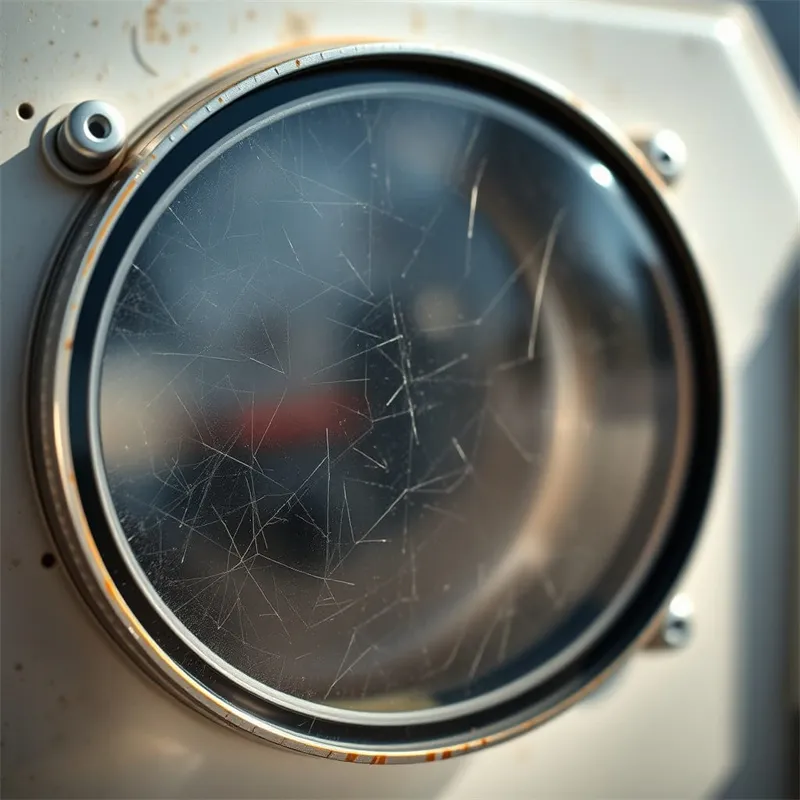
Application Case Studies
Real-world deployments demonstrate the critical role and effectiveness of special glass types in solving complex industrial challenges.
Case Study 1: High-Pressure Reactor Sight Glass for a Pharmaceutical Plant
A leading pharmaceutical manufacturer required robust sight glass for a new high-pressure, high-temperature chemical reactor handling corrosive solvents. Standard soda-lime glass proved inadequate due to chemical attack and limited thermal shock resistance. Our solution involved custom-fabricated borosilicate glass discs, chemically strengthened to withstand pressures up to 15 bar and temperatures oscillating between 20°C and 180°C. The glass met stringent FDA compliance for material purity. This allowed for critical real-time visual monitoring of the reaction process, enhancing safety and yield consistency. Customer feedback highlighted the exceptional clarity and long-term stability of the glass, reducing downtime associated with frequent replacements.
Case Study 2: Ballistic-Resistant Glazing for a Financial Institution
A major financial institution sought to upgrade its perimeter security against potential threats, specifically requiring glazing that could resist multiple ballistic impacts. We provided a multi-layered laminated security glass solution, incorporating specific types of special glass with SentryGlas Plus interlayers. This custom Burglar-Proof Glass product achieved a P6B security rating according to EN 356 standards and a BR4 ballistic rating according to EN 1063. The installation significantly enhanced the building's defensive capabilities, offering peace of mind to both staff and clients. The client praised the seamless integration with existing architecture and the robust protection provided, which was verified through independent third-party testing.
Case Study 3: Custom Optics for Aerospace Sensors
An aerospace engineering firm needed highly precise optical windows for a new generation of satellite-based atmospheric sensors. The requirements included extreme UV transparency, minimal thermal expansion across a wide temperature range (-80°C to +150°C in orbit), and radiation resistance. Our team engineered custom fused silica optical components with proprietary anti-reflective coatings. These components were manufactured with a flatness tolerance of lambda/10 (λ/10) and parallelism better than 5 arcseconds. The success of this project enabled the client to achieve unprecedented accuracy in atmospheric data collection, contributing to advanced climate modeling and weather forecasting.

Trustworthiness & Support: FAQ, Lead Time, Warranty
Building trust with our B2B partners is foundational. We provide transparent information regarding product specifications, delivery, and post-sales support for all types of special glass.
Frequently Asked Questions (FAQ):
A: Tempered glass is heat-treated to increase its strength and, upon breaking, shatters into small, blunt fragments for safety. Laminated glass consists of two or more glass panes bonded together with an interlayer (e.g., PVB, SGP). When laminated glass breaks, the fragments adhere to the interlayer, maintaining the glass's integrity and preventing large openings, offering enhanced security and safety.
A: Absolutely. Our state-of-the-art CNC machining capabilities allow for precision cutting, drilling, edge grinding, and shaping to almost any specified dimension or complex geometry, ensuring a perfect fit for your application.
A: Lead times vary depending on the complexity of the order, material availability, and production schedule. For standard items, it typically ranges from 2-4 weeks. For highly customized or large-volume orders, lead times can be between 6-12 weeks. We provide a detailed project timeline upon order confirmation.
A: Our products comply with various international standards, including ISO 9001 for quality management, ASTM, ANSI, and EN standards for safety and performance. Specific product certifications are provided with each order upon request.
Lead Time & Fulfillment:
We maintain efficient production lines and a robust supply chain to minimize lead times for our diverse range of special glass types. Our project management team works closely with clients from quotation to delivery, ensuring transparent communication regarding production milestones and logistical arrangements. We offer various shipping options, including sea freight, air freight, and express delivery, to meet urgent requirements globally. All products are meticulously packaged to prevent damage during transit.
Warranty Commitments:
We stand by the quality and performance of our products. All our special glass solutions come with a standard warranty against manufacturing defects, typically ranging from 1 to 5 years, depending on the product type and application. Extended warranty options are available for specific projects. Our commitment includes ensuring that products conform to agreed-upon specifications and perform reliably in their intended applications.
Customer Support:
Our dedicated technical support team is available to assist with product selection, technical specifications, installation guidance, and troubleshooting. We offer pre-sales consultation, engineering support during the design phase, and responsive after-sales service. Our goal is to forge lasting partnerships by providing comprehensive support throughout the entire product lifecycle. Contact our experts at [Insert Contact Information - e.g., sales@chinamirrorglass.com] for any inquiries.
Conclusion
The landscape of industrial materials is constantly evolving, and types of special glass are at the forefront of this innovation. From providing critical safety in high-risk environments to enabling precision in advanced scientific instruments, these engineered glass solutions are indispensable. Their unique combinations of thermal, chemical, mechanical, and optical properties make them superior choices where conventional materials fall short. Partnering with an experienced special glass factory that offers customization, adherence to stringent quality standards, and robust technical support is crucial for project success in today’s demanding B2B sectors. As industries continue to push boundaries, the role of advanced glass will only expand, driving further innovation and specialized applications.
References
- Schott AG. (2023). Properties of Borosilicate Glass DURAN. Available from: [https://www.schott.com/duran/]
- Corning Inc. (2023). Gorilla Glass Technical Specifications. Available from: [https://www.corning.com/gorillaglass/worldwide/en/data-sheet.html]
- Saint-Gobain. (2022). Laminated Glass for Security Applications. Available from: [https://www.saint-gobain-glass.com/product/sg-lami-safe-security]
- ISO 9001:2015. (2015). Quality management systems — Requirements. International Organization for Standardization.
- ASTM C1048-20. (2020). Standard Specification for Heat-Treated Flat Glass—Kind HS, Kind FT Coated and Uncoated Glass. ASTM International.
-
Types of Reflective Glass
NewsNov.17,2025
-
What Is Dichroic Glass?
NewsNov.17,2025
-
Smart LED mirrors can have touch controls
NewsNov.17,2025
-
Laminated glass improves energy efficiency
NewsNov.17,2025
-
Insulated glass enhances building comfort
NewsNov.17,2025
-
Acid etched glass offers elegant privacy
NewsNov.17,2025
Related PRODUCTS







